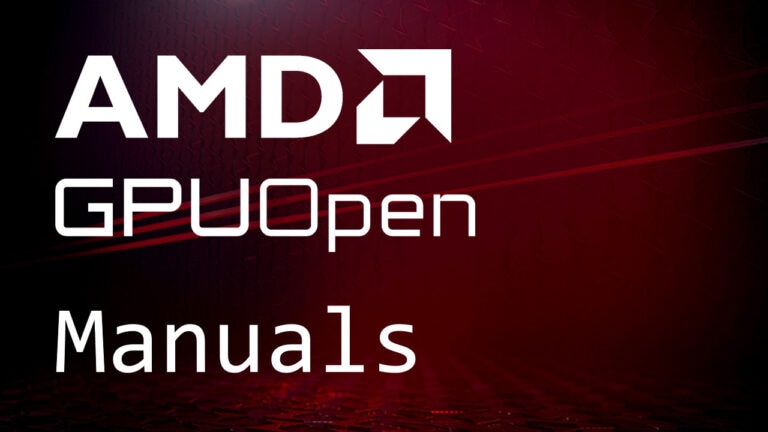# Copyright (c) 2024 Advanced Micro Devices, Inc. All Rights Reserved.
"""
Utility functions and classes for Schola.
"""
from functools import cached_property, singledispatchmethod
from typing import List, Optional, Tuple, TypeVar, Dict, Iterable, Union
from dataclasses import dataclass
import argparse
K = TypeVar("K")
V = TypeVar("V")
T = TypeVar("T")
# A generic recursive dictionary type
NestedDict = Dict[K, Union[V, "NestedDict[V]"]]
[docs]
def nested_get(dct: NestedDict[K, V], keys: Iterable[K], default: V) -> V:
"""
Get a value from a nested dictionary, returning a default value if the key is not found.
Parameters
----------
dct : NestedDict[K,V]
The dictionary to search.
keys : Iterable[K]
The keys to search for in the dictionary.
default : V
The value to return if the key is not found.
Returns
-------
V
The value found in the dictionary, or the default value if the key is not found.
"""
curr_dct = dct
for key in keys:
if key in curr_dct:
curr_dct = curr_dct[key]
else:
return default
return curr_dct
[docs]
class IdManager:
"""
A class to manage the mapping between nested and flattened ids.
Parameters
----------
ids : List[List[int]]
A nested list of lists of ids to manage, index in the list is first id, second id is stored in the second list.
Attributes
----------
ids : List[List[int]]
The nested list of lists of ids to manage.
"""
[docs]
def __init__(self, ids: List[List[int]]):
self.ids = ids
[docs]
def flatten_id_dict(
self, nested_id_dict: Dict[int, Dict[int, T]], default: Optional[T] = None
) -> List[T]:
"""
Flatten a dictionary of nested ids into a list of values.
Parameters
----------
nested_id_dict : Dict[int, Dict[int, T]]
The dictionary to flatten.
default : Optional[T], optional
The default value to use if a key is not found, by default None.
Returns
-------
List[T]
A flattened list of the values found in the dictionary.
"""
output_list = [default for i in range(0, self.num_ids)]
for first_id, nested_ids in nested_id_dict.items():
for second_id, value in nested_ids.items():
output_list[self.id_map[first_id][second_id]] = value
return output_list
[docs]
def nest_id_list(
self, id_list: List[T], default: Optional[T] = None
) -> Dict[int, Dict[int, T]]:
"""
Nest a list of values, indexed by flattened id, into a dictionary of nested ids.
Parameters
----------
id_list : List[T]
The list of values to convert into a nested dictionary.
default : Optional[T], optional
The default value to use if a key is not found, by default None.
Returns
-------
Dict[int, Dict[int, T]]
A nested dictionary of the values in `id_list` or `default` if values are missing.
"""
output_dict = {
first_id: {second_id: default for second_id in nested_ids}
for first_id, nested_ids in enumerate(self.ids)
}
for flat_id, body in enumerate(id_list):
first_id, second_id = self[flat_id]
output_dict[first_id][second_id] = body
return output_dict
@singledispatchmethod
def __getitem__(self, key):
"""
Convert a key into a nested or flattened id, from a flattened or nested id respectively.
Parameters
----------
key : Union[int, Tuple[int,int]]
The key to convert.
Returns
-------
Union[Tuple[int,int], int]
The converted key.
Raises
------
NotImplementedError
If the key is not of type int or Tuple[int,int].
"""
raise NotImplementedError(
"get item not supported for keys that aren't int or Tuple[int,int]"
)
@__getitem__.register
def _(self, key: int) -> Tuple[int, int]:
return self.id_list[key]
@__getitem__.register
def _(self, key: tuple) -> int:
assert len(key) == 2, "if supplying tuple key must supply a key of length 2"
return self.id_map[key[0]][key[1]]
[docs]
def get_nested_id(self, flat_id: int) -> Tuple[int, int]:
"""
Get the nested id from a flattened id.
Parameters
----------
flat_id : int
The flattened id to convert.
Returns
-------
Tuple[int,int]
The nested id.
"""
return self[flat_id]
[docs]
def get_flattened_id(self, first_id: int, second_id: int) -> int:
"""
Get the flattened id from a nested id.
Parameters
----------
first_id : int
The first id.
second_id : int
The second id.
Returns
-------
int
The flattened id.
"""
return self[first_id, second_id]
@cached_property
def id_list(self) -> List[Tuple[int, int]]:
"""
List of nested ids, for lookups from flattened id to nested ids.
Returns
-------
List[Tuple[int, int]]
List of nested ids.
"""
id_list = []
for first_id, nested_ids in enumerate(self.ids):
for second_id in nested_ids:
id_list.append((first_id, second_id))
return id_list
@cached_property
def id_map(self) -> List[Dict[int, int]]:
"""
List of dictionaries mapping nested ids to flattened ids.
Returns
-------
List[Dict[int,int]]
List of dictionaries mapping nested ids to flattened ids.
"""
id_map = [{} for first_id in self.ids]
uid = 0
for first_id, nested_ids in enumerate(self.ids):
for second_id in nested_ids:
id_map[first_id][second_id] = uid
uid += 1
return id_map
[docs]
def partial_get(self, first_id: int) -> List[int]:
"""
Get the second ids for a given first id.
Parameters
----------
first_id : int
The first id to get the second ids for.
Returns
-------
List[int]
The second ids for the given first id.
"""
return self.ids[first_id]
@cached_property
def num_ids(self) -> int:
"""
The number of ids managed by the IdManager.
Returns
-------
int
The number of ids.
"""
return sum(map(len, self.ids))
import torch as th
[docs]
class ScholaModel(th.nn.Module):
"""
A PyTorch Module that is compatible with Schola inference.
"""
[docs]
def __init__(
self,
):
super().__init__()
[docs]
def forward(self, x: th.Tensor, state) -> Tuple[th.Tensor, th.Tensor]:
raise NotImplementedError("forward method must be implemented in subclass")
[docs]
def save_as_onnx(self, export_path: str, onnx_oppset: int = 17):
raise NotImplementedError("save as ONNX method must be implemented in subclass")
[docs]
def get_plugins(group_name: str) -> List:
"""
Returns a list of plugins for a given group name.
Parameters
----------
group_name : str
The name of the plugin group to search for.
Returns
-------
List
A list of loaded plugin objects for the specified group name.
"""
from importlib.metadata import entry_points
eps = entry_points()
if hasattr(eps, 'select'):
discovered_plugins = eps.select(group=group_name)
else:
discovered_plugins = eps.get(group_name, [])
return [x.load() for x in discovered_plugins]














